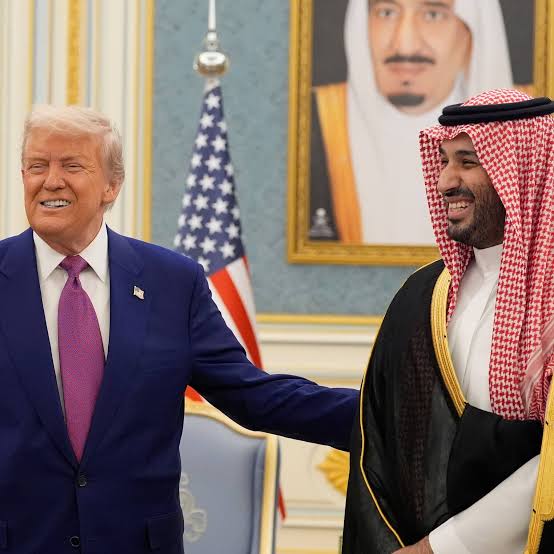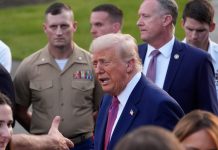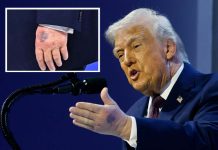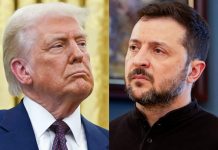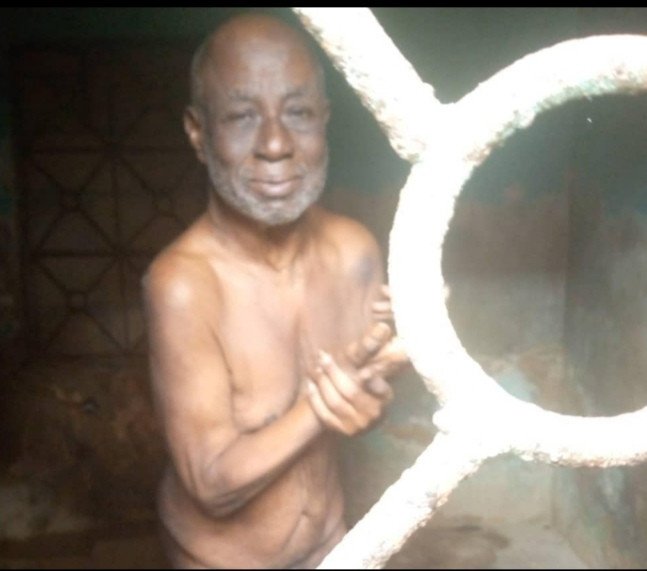Syria has been dubbed a state sponsor of terrorism since 1979, when deposed dictator Bashar al-Assad’s father, Hafez al-Assad, was president.
More sanctions and restrictions were imposed on Syria in 2003.
Following the start of the Syrian civil war in 2011, the US government ramped up sanctions in an attempt to deprive the regime of the resources it needed ‘to continue violence against civilians and to pressure the Syrian regime to allow for a democratic transition’.
Sanctions froze assets and interests in property in the US of Syrian officials, including Bashar al-Assad, as well as investments in Syria or the exportation of goods there by US citizens.
Petrol of Syrian origin could also not be imported to the US.

Now, Donald Trump has made surprise announcement that US sanctions will be lifted on Syria – and there have been celebrations in Syria at the news.
Trump says Syria’s new allies, Saudi Arabia and Turkey, convinced him to lift punishing sanctions. It helps solidify their ambition to shape a new Syria, and benefit from an expected raft of reconstruction contracts.
Just last December, President Trump had made it clear the US had no interest in Syria, but now he said meeting between him and Syria’s new allies, Saudi Arabia and Turkey, convinced him to lift punishing sanctions.
‘It helps solidify their ambition to shape a new Syria, and benefit from an expected raft of reconstruction contracts.’ Trump said.
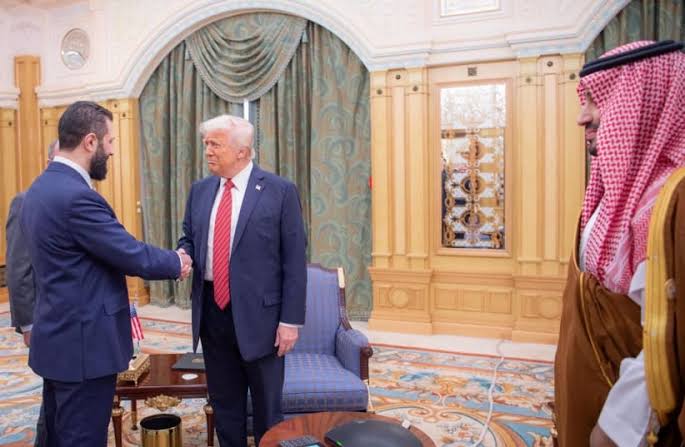
Since Ahmed won against Bashar al-Assad from power at the end of last year, he has been optimistic and working hard in trying to convince foreign leaders that he represents a new hope for Syria’s future, despite his jihadist past.
The five demands issued to Syria by Trump
During Trump’s meeting with Syrian transitional President Ahmed al-Sharaa, he gave the leader five conditions that need to be agreed on.
According to White House press secretary Karoline Leavitt, the U.S president wants Ahmed to sign the Abraham Accords in order to normalise relations with Israel; to inform all ‘foreign terrorists’ to leave Syria; that ‘Palestinian terrorists’ be deported; to work with the United State in stopping the resurgence of the so called Islamic State; and to assume the responsibility for detention centres relating to the group in northeast Syria.

